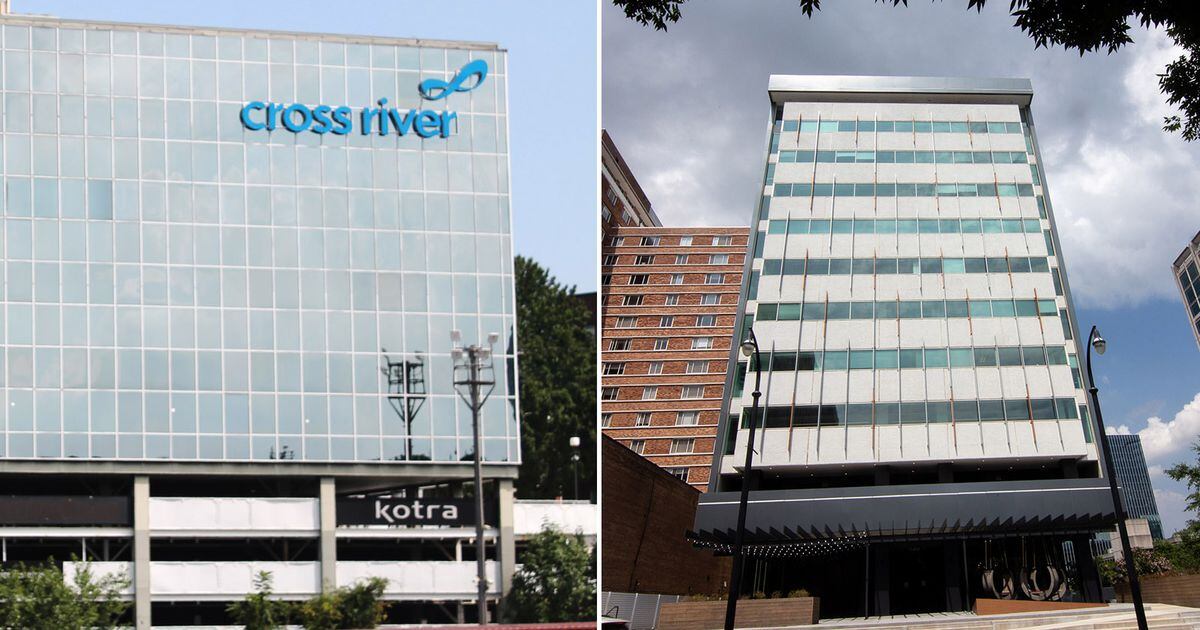Some FinTechs even seemed to specialize in questionable loans, according to a recent study out of the University of Texas on how FinTechs may have facilitated fraud in the business relief programs.
Now, some are questioning why those companies haven’t been held to account. They point to a Bloomberg analysis that found while FinTechs processed about 15{797b2db22838fb4c5c6528cb4bf0d5060811ff68c73c9b00453f5f3f4ad9306b} of PPP loans, they are associated with 75{797b2db22838fb4c5c6528cb4bf0d5060811ff68c73c9b00453f5f3f4ad9306b} of loans the Justice Department has connected with fraud.
And the University of Texas study found suspicious loans clustered in regions of the country, including Atlanta, where FinTechs had the largest market share.
“A lot of these lenders, they’ve made almost pure profit off of this program by basically letting fraudsters have access to billions of dollars in loan money,” Nick Schwellenbach, a senior investigator for the Project on Government Oversight, said. “They probably won’t be held accountable, and it’s the bigger crime here, even though it won’t probably lead to charges.”
The Justice Department has never moved against any lenders whose approval processes facilitated high numbers of loans leading to fraud prosecutions.
That means lenders are unlikely to face financial penalties, either. Federal rules under the Trump-era program specified that lenders would not have to repay fees unless they were found guilty of fraud in connection with loans.
Easy pickings
While federal prosecutors focus on borrowers, the cases they bring may only scratch the surface of the pervasive fraud estimated to have taken place in the programs.
Small Business Administration Inspector General Hannibal “Mike” Ware has called the magnitude of fraud “unprecedented,” estimating that of more than $1 trillion distributed, more than 5{797b2db22838fb4c5c6528cb4bf0d5060811ff68c73c9b00453f5f3f4ad9306b} of transactions may have been fraudulent.
In a report to Congress last month, Ware reported that less than $1 billion has been seized or recovered so far, with more than 300 fraudsters brought to justice.
That has led to accusations that U.S. attorney offices are pursuing low-level defendants while ignoring or letting off the hook those who carried out sophisticated schemes.
For example, private equity firms that buy and sell other companies didn’t qualify for PPP loans because they have access to other sources of funding. But federal data show thousands of companies in private equity portfolios received money. Legal experts say that may invite federal scrutiny, but the Justice Department has yet to act against any private equity firms.
Federal prosecutors so far have focused many of their investigations of Paycheck Protection Program fraud on those who obtained PPP money for businesses that didn’t exist or lined their pockets and made extravagant purchases. But the program, intended to help preserve jobs at small businesses, was exploited in other ways by the unscrupulous, according to a federal watchdog.
These are among the schemes:
- Business owners laid off workers so their companies were small enough to qualify for loans
- Business owners inflated payroll expenses to obtain more money
- Business owners did not use the loan money they received for their business
- Business owners lied about retaining employees
- Business owners who received loans refused to allow workers to return to work, telling them to continue on unemployment assistance
- Business owners falsely certified that the loan was necessary to support ongoing operations, even though they had substantial financial resources
In the Northern District of Georgia, critics say prosecutors have focused on schemes that may be easy to spot because of faked records or extravagant purchases.
“It appears as if they’re going after low-hanging fruit,” said Francys Johnson, an attorney and former NAACP Georgia president who serves on an advisory committee to U.S. Sens. Raphael Warnock and Jon Ossoff recommending nominees for Georgia’s federal judiciary appointments.
“I can tell you,” Johnson said, “that the priority of those offices for far too long has been skewed against the kind of pervasive fraud that takes place in banking, housing, and other major enterprise, while going after smaller sources of fraud.”
Francys Johnson, an attorney and former NAACP Georgia president, says that federal prosecutors appear to be “going after low-hanging fruit” in their pursuit of PPP fraud perpetrators. (Rebecca Wright for The Atlanta Journal-Constitution)
Credit: Rebecca Wright for the AJC

Credit: Rebecca Wright for the AJC
Francys Johnson, an attorney and former NAACP Georgia president, says that federal prosecutors appear to be “going after low-hanging fruit” in their pursuit of PPP fraud perpetrators. (Rebecca Wright for The Atlanta Journal-Constitution)
Credit: Rebecca Wright for the AJC
Credit: Rebecca Wright for the AJC
That pattern has also given rise to accusations of racial bias.
In the three Georgia fraud cases with loans through Cross River Bank, most defendants are Black, as are the overwhelming majority of those charged in the Northern District of Georgia with plundering PPP or the Economic Injury Disaster Loan programs.
Of 77 prosecuted so far, identified through public records by The Atlanta Journal-Constitution and defense attorneys, at least 70 are persons of color.
Three defense attorneys in PPP and EIDL fraud cases are seeking to have charges dismissed, accusing the government of selective prosecution. They face an uphill battle, though, since legal precedents require them to prove the government intentionally targeted people of color, not just that the statistics are skewed.
Atlanta lawyer Saraliene Durrett was court-appointed to represent Nikia Wakefield, the Walmart worker with an eighth-grade education who faces more than two years in prison if convicted. Durrett said her client was misled by a cousin, one of the accused ringleaders.
Durrett co-filed a motion to dismiss with defense attorney Leigh Ann Webster, who has a client facing charges in the same case and represents three other defendants in separate PPP cases.
Court-appointed defense attorney Saraliene Durrett’s client, Nikia Wakefield, is accused of taking a $10,000 EIDL loan advance that she wasn’t entitled to. Unlike some white men and corporations, she hasn’t been allowed to settle the matter by returning the money, Durrett said. (Contributed)
Credit: Contributed
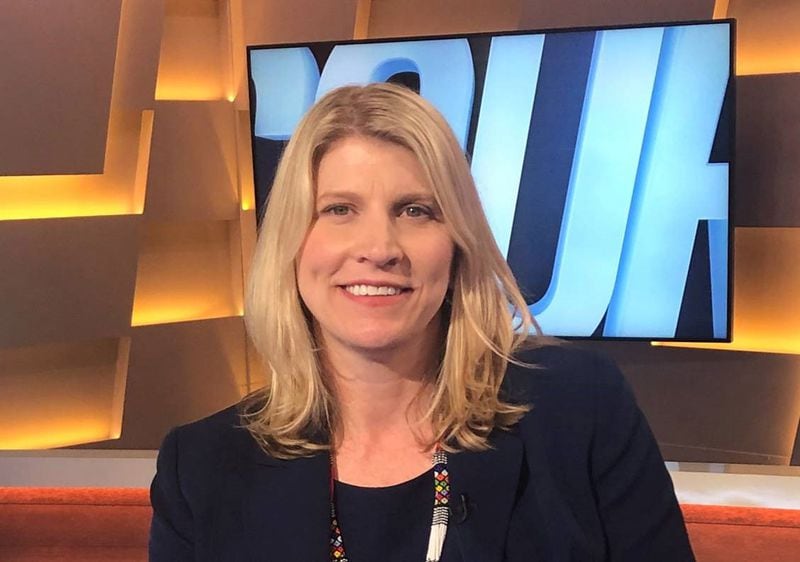
Credit: Contributed
Court-appointed defense attorney Saraliene Durrett’s client, Nikia Wakefield, is accused of taking a $10,000 EIDL loan advance that she wasn’t entitled to. Unlike some white men and corporations, she hasn’t been allowed to settle the matter by returning the money, Durrett said. (Contributed)
Credit: Contributed
Credit: Contributed
The two complained that in other parts of the country, wealthy white men and corporations have been allowed to make civil settlements in PPP or EIDL cases.
Webster and Durrett cited a California case where a company and its white CEO were allowed to settle by returning $350,000 and paying $100,000 in damages and penalties. They also cited a Florida case where a charter jet company owner paid $287,000 to settle.
The attorneys said their clients, both Black women, have been offered no such opportunity.
“I think there’s a racial component to it, absolutely,” Durrett said. “But I also think there’s a socioeconomic component to it. People who have the ability to mount a defense did mount a defense, and they were able to pay it back early on, saying, ‘Look, we just misunderstood.’”
Defense attorney Leigh Ann Webster, who represents several defendants accused of pandemic loan fraud, has stated in a motion that Black defendants are being disproportionately prosecuted by the Atlanta U.S. Attorney’s Office in CARES Act cases. (Jeff Lewis / Contributed)
Credit: Jeff Lewis
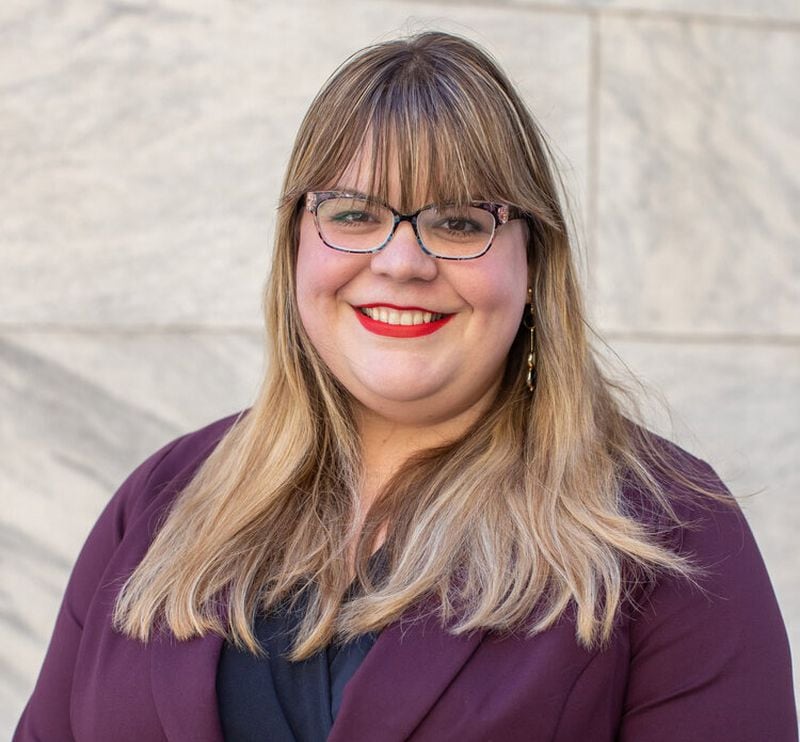
Credit: Jeff Lewis
Defense attorney Leigh Ann Webster, who represents several defendants accused of pandemic loan fraud, has stated in a motion that Black defendants are being disproportionately prosecuted by the Atlanta U.S. Attorney’s Office in CARES Act cases. (Jeff Lewis / Contributed)
Credit: Jeff Lewis
Credit: Jeff Lewis
A separate motion to dismiss has been filed on behalf of Travis Crosby, the trucking company owner who faces fraud, conspiracy and money laundering charges.
The office of Northern District of Georgia U.S. Attorney Kurt Erskine said in an emailed statement that “race is not a factor in any investigative or prosecutorial decision,” pointing out that a federal magistrate judge has already eviscerated the defense attorneys’ argument in a ruling.
Denying their request to obtain investigative records through discovery, the judge said “defendants have offered nothing to suggest that the government has acted with discriminatory purpose in prosecuting them,” indicating he’ll likely shoot down the motion to dismiss the charges, as well.
The defense attorneys are appealing.
Alleging selective prosecution, defense attorney Esther Panitch has filed a motion to dismiss behalf of Travis Crosby, a trucking company owner who faces fraud, conspiracy and money laundering charges in an alleged PPP scheme involving at least four other business owners. (Jonah Blumenthal / Contributed)
Credit: Jonah Blumenthal
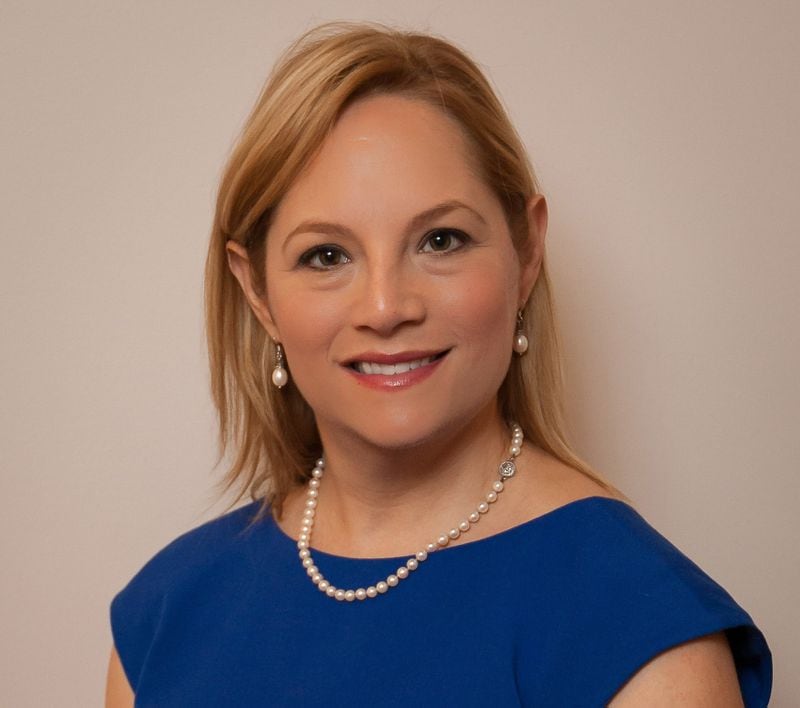
Credit: Jonah Blumenthal
Alleging selective prosecution, defense attorney Esther Panitch has filed a motion to dismiss behalf of Travis Crosby, a trucking company owner who faces fraud, conspiracy and money laundering charges in an alleged PPP scheme involving at least four other business owners. (Jonah Blumenthal / Contributed)
Credit: Jonah Blumenthal
Credit: Jonah Blumenthal
Bigger fish
Vic Hartman, an Atlanta attorney and former FBI supervisor over fraud investigations, said it’s not realistic to expect the government to bring every PPP or EIDL fraudster to justice.
Prosecutors, he said, are looking for cases that can serve as a deterrent to others. FBI analysts are most likely culling through data looking for clear red flags, such as discrepancies between loan applications and tax records, Hartman said.
“And then you just size up and say, ‘All right, we’ll work the 20 most egregious cases in our field division, or the 100 most egregious cases, and we’ll prosecute those because it’s not going to take much resources, the dollar amounts are high, and it’s low-hanging fruit,’” Hartman said. “And then that’s what the government’s going to prosecute, but that’s only going to be a drop in the bucket.”
Vic Hartman, an Atlanta attorney and former FBI supervisor over fraud investigations, said it’s not realistic to expect the government to bring every PPP or EIDL criminal to justice. (Contributed)
Credit: Contributed

Credit: Contributed
Vic Hartman, an Atlanta attorney and former FBI supervisor over fraud investigations, said it’s not realistic to expect the government to bring every PPP or EIDL criminal to justice. (Contributed)
Credit: Contributed
Credit: Contributed
FinTechs could have spotted some of the same red flags, according to the study by researchers at the McCombs School of Business at the University of Texas, Austin.
Instead, loans too often were approved involving non-registered businesses, multiple businesses at residential addresses, abnormally high implied compensation per employee, and large inconsistencies in jobs reported with other government programs.
Atlanta-based Kabbage, an online lender, became heavily involved in Paycheck Protection Program loans. Its PPP lending entity now does business as K Servicing. (Steve Schaefer for The Atlanta Journal-Constitution)
Credit: Steve Schaefer for the AJC
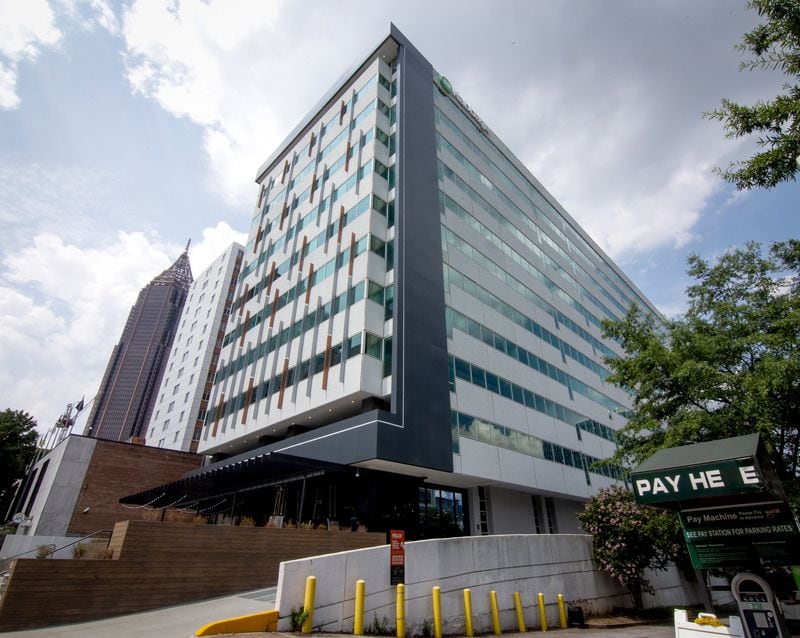
Credit: Steve Schaefer for the AJC
Atlanta-based Kabbage, an online lender, became heavily involved in Paycheck Protection Program loans. Its PPP lending entity now does business as K Servicing. (Steve Schaefer for The Atlanta Journal-Constitution)
Credit: Steve Schaefer for the AJC
Credit: Steve Schaefer for the AJC
FinTechs also were more likely than traditional lenders to process loans for those with felony criminal records, the study found. The four lenders it found with the highest percentage of such loans included Cross River and Atlanta-based Kabbage, whose PPP lending entity now does business as K Servicing.
Cross River is estimated to have received more than $1 billion in fees for PPP loans, according to the study. Kabbage was paid an estimated $187.8 million.
Neither K Servicing nor Cross River Bank responded to emails seeking interviews for this story.
The only known probe of FinTechs’ role is being conducted by the U.S. House Select Subcommittee on the Coronavirus Crisis, which wants to know if some may have violated federal banking laws.
Cross River Bank and Kabbage are among the companies the subcommittee has had in its crosshairs.
Kabbage failed to conduct even cursory checks of borrowers, the subcommittee said in a letter asking the company for documents on how it reviewed and approved loans. In one case, a Florida company registered to a residential address and lacking proper licenses received hundreds of thousands of dollars. The company was established nearly three months after the deadline for businesses to qualify, the letter said.
The day after receiving an application, Cross River Bank approved a $1.2 million loan to a Minnesota man who used his first and last name as his business name and claimed to have 120 employees working out of an apartment, according to the subcommittee.
“There appears to be no penalty for suspicious lending thus far…,” the University of Texas researchers said. “If the system is not changed, the most likely outcome is even more of the same.”

